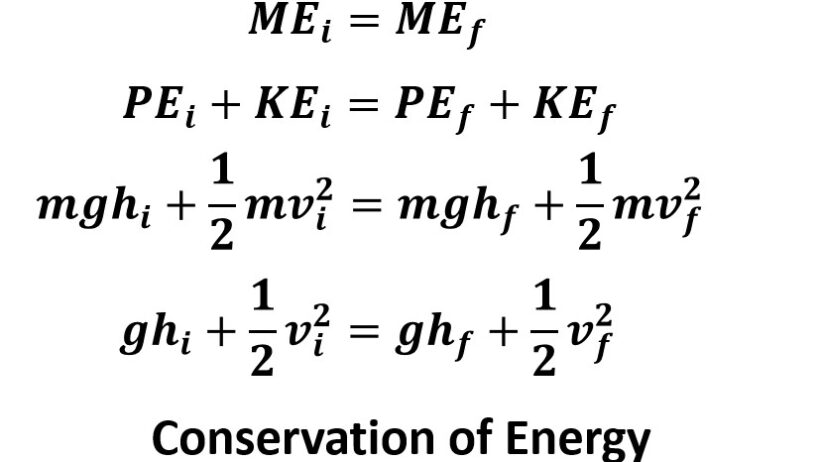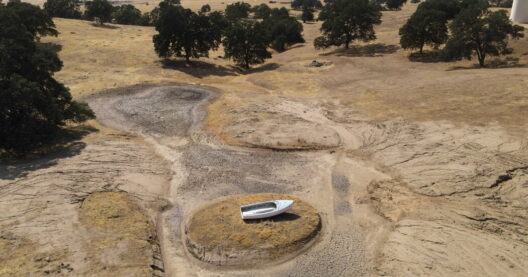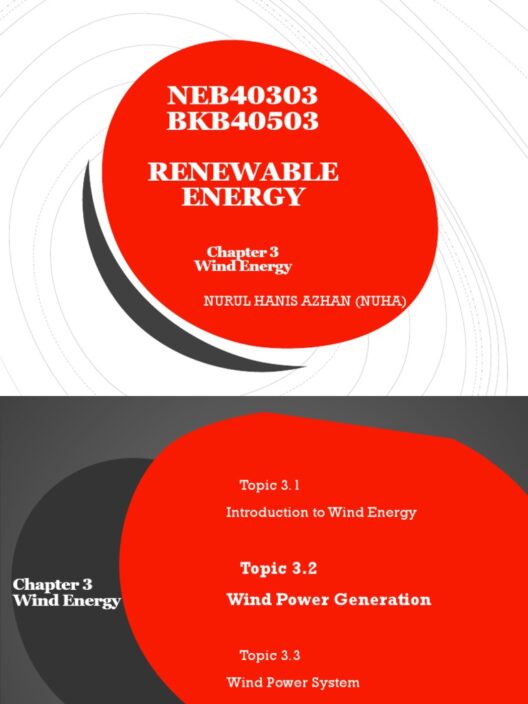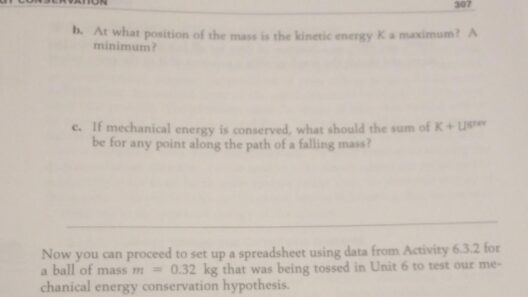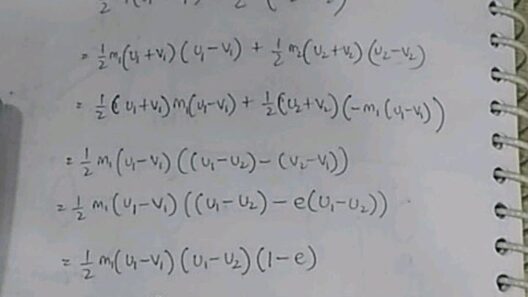The concept of conservation of energy is foundational in the realm of physics, articulating the principle that energy cannot be created or destroyed, but can only change forms. This law underpins numerous scientific disciplines and has significant implications for both theoretical and practical applications. To explore this vital concept more deeply, we will break it down into comprehensible segments that elucidate its definition, practical implications, and various manifestations in the physical world.
Understanding conservation of energy begins with grasping what energy is. At its core, energy is the capacity to perform work. From launching a rocket into space to heating a pot of water, energy facilitates various processes. Importantly, when we refer to the conservation of energy, we are describing an invariant quantity across a closed system, where the total energy remains constant, even as it transitions between different forms.
Energy’s primary forms include kinetic energy—the energy of motion, and potential energy—stored energy based on an object’s position or state. These two energies often interconvert in dynamic systems. For example, a child on a swing possesses potential energy at the peak of its arc, which converts to kinetic energy as the swing descends. This interplay highlights not only the aesthetic simplicity of energy conservation but also the intricate balance present in natural systems.
Another illustrative example is the conversion of chemical energy into kinetic energy within the context of an automobile engine. The process starts with the combustion of fuel, which releases energy stored in chemical bonds. This energy propels pistons, transforming it into kinetic energy, thus yielding motion. Even in a seemingly chaotic system, such as a pendulum, the energy continuously oscillates between kinetic and potential forms, reinforcing the tenet that the total energy remains unchanged.
Significantly, the conservation of energy has practical applications that extend beyond academic confines. It plays a crucial role in energy efficiency and renewable energy development. In today’s climate-conscious world, understanding energy conservation is not merely an academic exercise; it is imperative for addressing global energy demands and environmental sustainability. Recognizing that energy is finite encourages innovation in energy-efficient technologies. For instance, electric vehicles convert energy from batteries more efficiently than internal combustion engines, underscoring the promise of conservation in modern technology.
Exploring the Law of Conservation of Energy in Different Contexts
Across diverse fields, the conservation of energy manifests uniquely, demonstrating its universality. In mechanics, the conservation law governs movements and forces, while in thermodynamics, it regulates heat transfer and energy changes associated with temperature variations. Within the context of thermodynamics, two pivotal laws emerge: the first law articulates the conservation principle, while the second law, concerning entropy, introduces the concept of energy dispersal and degradation over time.
In electrical systems, conservation of energy underlies the functioning of circuits, where electrical energy is transformed into light or thermal energy in devices like light bulbs or heaters. In a closed circuit, the sum of energy supplied equals the energy consumed, further exemplifying energy conservation in practice. This principle fosters better design and efficiency in electrical appliances, making energy conservation integral to modern engineering practices.
The domain of quantum physics, though seemingly esoteric, also abides by this conservation law. During interactions at subatomic levels, such as particle collisions or decays, energy conservation remains evident. Despite the complexities encountered in quantum mechanics, the total energy is conserved, reinforcing the law across the spectrums of scale and complexity.
The Implications of Energy Conservation in Daily Life
For the average individual, understanding conservation of energy can illuminate numerous everyday practices. Awareness of how energy flows and transforms can enhance efficiency in homes, from incorporating better insulation to utilizing energy-efficient appliances. Simple actions, such as turning off lights or unplugging devices when not in use, significantly contribute towards energy conservation on a personal scale.
Moreover, recognizing the energy consumption associated with various activities informs choices regarding transportation, heating, and cooling methods. Individuals can reduce their environmental footprint significantly by opting for sustainable practices, thereby fostering a larger societal shift towards energy conservation.
Conclusion: The Enduring Significance of Energy Conservation
To summarize, the law of conservation of energy is an omnipresent principle in physics that informs a multitude of processes and applications. Its implications extend well beyond scientific theory, underscoring the necessity for responsible energy management and conservation practices in everyday life. By understanding and employing this crucial principle, individuals and society can work towards more sustainable energy consumption patterns, ensuring a balance between development and environmental stewardship. As energy challenges persist globally, the importance of conserving energy remains paramount, guiding innovations and behaviors that will shape our shared future.



